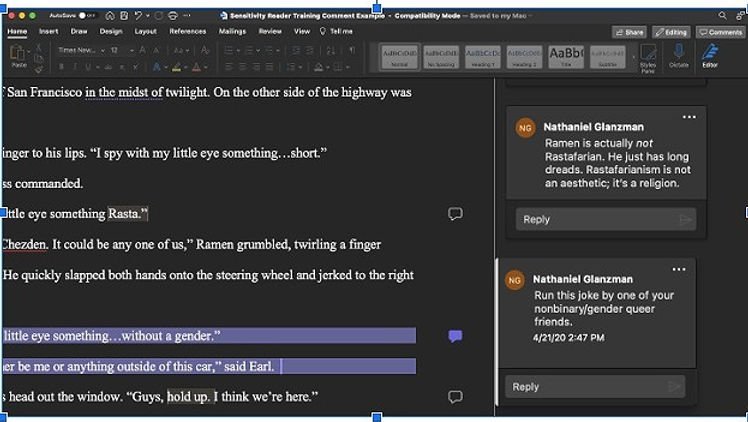Resource Library
D ‘n’ d: The Debate Over Whether to Capitalize the “d” in “deaf
The deaf community is highly diverse it is therefore perhaps not surprising that it can be hard to find consensus about Deaf or deaf!
Author Talk: Annie Cosby
The simple fact is that we can never truly know what someone else’s life is like. This is true, of course, of literally anyone, but there is a greater risk of harm when you’re writing characters with marginalized identities that you don’t personally have. For that reason, I think you have a greater responsibility to do everything in your power to get it right.
Writing Psychiatric Hospitalization with Accuracy and Care
Writing about a patient in a psychiatric hospital needs a lot of consideration and critical care.
Autistic Characters Deserve Good Representation
Write the character as a person, not a diagnosis. We’re complicated, interesting, and main characters in our own right.
What Authors and Publishers Can Learn from American Fiction
This isn’t a review of "American Fiction”. Instead, this post helps examine what we as writers and publishers can learn from this film that holds up a mirror to see the choices made when writing and publishing historically marginalized characters.
Busting Three Common ADHD Myths to Put The Facts in Your Fiction
With 6 million children diagnosed with ADHD in the last two decades, Attention Deficit Hyperactivity Disorder is a condition that’s rarely out of the public eye. And since so many families are affected, misinformation is rampant.
Writing an Autistic Character But Don’t Know Where to Start?
While their entire personality shouldn’t be dictated by their Autism symptoms, here’s some insight on how to describe an Autistic character.
Should I “Stay in My Lane” as a Writer?
"Should I even write this?" This series of open ended questions can help you determine if you should write that project.
On Sensitivity Readers and Censorship: Why We Can't & Wouldn't Want To
Even though sensitivity readers are often blamed for censoring books this article tells you why we can't and why we don't want to.
Read With Us! Diverse Books of the Month
Every month we will select a title written by a historically marginalized author that features at least 1 marginalized character.
Muslims in the World of Magic
From Jinn to Islamic principles, what to consider if you want to write Muslims in magical worlds.
What to Expect When You Hire a Sensitivity Reader
Considering hiring a sensitivity reader? Here's what you can expect. From basic definitions, what does feedback entail, to cost and more.
Writing with Disabilities: What I Wish I’d Known
As a writer with severe arthritis, productivity can be a struggle. These are the things I wish I’d known when I first started writing.
Making the Most Of Your Sensitivity Reader Feedback
Now that you've received feedback from your sensitivity reader, this helpful guide can get from comments to revisions.
Three Black Characters You Want to Avoid
Here are three warning signs you can use to determine if you should “avoid that Black character.”
Belonging and Growing Up Biracial
What does identity mean for biracial characters? Especially when how they look doesn't align with society's expectations.
Disabled Characters: Avoiding the Tragedy or Inspiration Binary
Is your disabled character a fully realized person or simply a prop?
Writing Well-Rounded Nonbinary Characters
There's more to your nonbinary characters than pronouns and coming out stories. Read tips on how to write well-rounded nonbinary characters.
Horror Clichés: Is it Scary or is it Bigotry?
Let’s talk about some common horror cliches, how they are rooted in bigotry, and some tips on how to not perpetuate them.
Writing the Hijab
A hijab is more than just a piece of cloth. Components of religion, culture, and agency must be considered when writing this character.
Coming Soon
Diverse Writing Prompt Group
This group is designed for any fiction writer looking to practice writing diversely without stereotypes or tokenism. You don’t have to be a particular identity or write a specific genre in order to join this group.
The prompts are designed to spark creativity and help members practice writing outside their identities with guidance and support from a sensitivity reader. Work is not to be critiqued.
The group meets virtually for 75 minutes, once a week for five weeks. At each meeting members will typically have two twenty minute rounds to write. Each round is followed by an optional opportunity to share.
Cost: $35





















